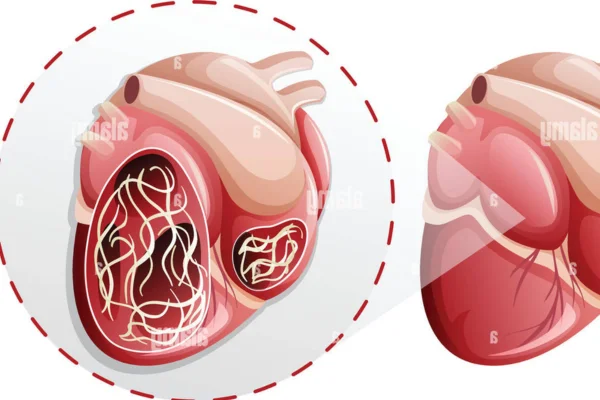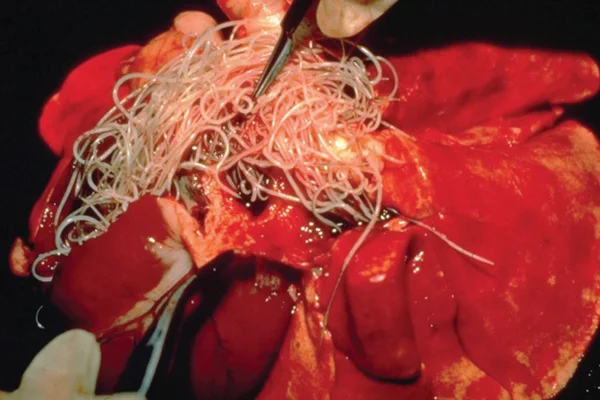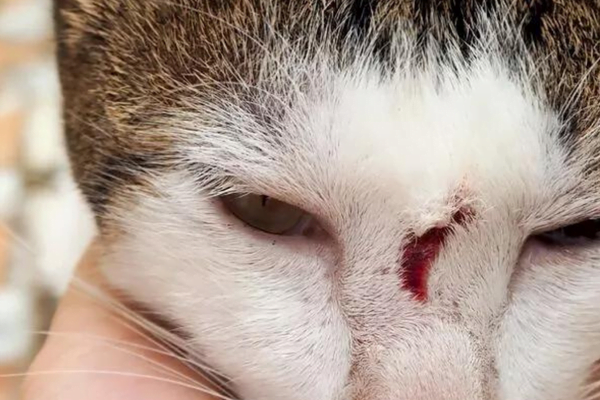Heartworm Disease: The Silent Threat to Dogs and Cats
Heartworm disease, commonly known as "heartworm disease", is a serious illness that affects dogs and cats. This disease is caused by the parasite Dirofilaria immitis, a worm that can grow and lodge in the heart, lungs and blood vessels of these animals, causing a series of health problems that can be fatal if not treated in time. Let's take an in-depth look at this disease, its causes, symptoms, prevention and treatment.
What is heartworm disease?
It is a parasitic disease transmitted by mosquitoes. When a mosquito bites an infected animal, it ingests microfilariae (worm larvae) present in the blood. These microfilariae develop inside the mosquito and, when it bites another animal, it transmits the infective larvae. These larvae migrate to the heart and lungs, where they mature into adult worms, causing significant damage.
Contents
How does heartworm disease affect animals?
Adult worms can grow up to 30 centimeters long and live for several years. In dogs, they mainly lodge in the heart and pulmonary arteries, but in severe cases, they can also be found in other organs. In cats, the number of worms is generally smaller, but even a small number can cause serious problems.
The worms cause inflammation and obstruction of the blood vessels, leading to pulmonary hypertension and heart failure. In cats, in addition to heart problems, heartworm disease can cause severe damage to the lungs and result in thromboembolism (obstruction of blood vessels by clots).
Symptoms of heartworm disease
The symptoms of heartworm disease vary depending on the number of worms present, the duration of the infection and the animal's immune response. In dogs, common symptoms include:
- Persistent cough
- Fatigue after moderate exercise
- Loss of appetite and weight
- Difficulty breathing
- Swollen abdomen due to heart failure
In cats, the symptoms are more varied and can include:
- Coughing and difficult breathing
- Frequent vomiting
- Loss of weight and appetite
- Lethargy
- Paralysis or convulsions in severe cases
Unfortunately, in many cases, the symptoms may not be apparent until the disease is at an advanced stage, which makes prevention and early diagnosis essential.
Diagnosis of heartworm disease
Heartworm disease is diagnosed using blood tests that detect the presence of antigens produced by the adult female worms. In dogs, tests for microfilariae (larvae) in the blood are also used to confirm the infection. For cats, diagnosis is more complicated, as they generally have a smaller number of worms and may not have circulating microfilariae. Therefore, antibody tests and imaging tests, such as X-rays and echocardiograms, are often necessary.
Treatment of heartworm disease
The treatment of heartworm disease is complex and should be carried out by an experienced veterinarian. For dogs, the protocol usually includes:
- Stabilizing the patientIn advanced cases, it is necessary to treat the symptoms of heart and lung failure before starting antiparasitic treatment.
- Treatment with adulticidesSpecific drugs are used to kill the adult worms. These drugs are administered in several doses to avoid complications.
- Treatment of microfilariaeOnce the adult worms have been eliminated, the larvae must be treated to prevent new infections.
- Restriction of activitiesDuring treatment, it is crucial to limit the animal's physical activity to avoid embolisms (blockages in the blood vessels) caused by the dead worms.
For cats, treatment is more challenging, as there are no approved drugs to safely eliminate adult worms. Management generally focuses on controlling symptoms and preventing new infections.
Prevention of heartworm disease
Prevention is the best way to protect animals against heartworm disease. There are various preventative medicines available, which can be administered monthly or at longer intervals, depending on the product. These drugs prevent mosquito-borne larvae from developing into adult worms. In addition, it is important to reduce animals' exposure to mosquitoes by using repellents and keeping them indoors during peak mosquito activity times.
Importance of Regular Prevention
Maintaining a regular prevention routine is essential, even for animals that spend most of their time indoors. Mosquitoes can enter homes and bite animals, starting the cycle of infection. In addition, heartworm disease is present in various regions of Brazil and the world, which increases the risk of exposure.
Myths and Truths about heartworm disease
Myth: "Pets that live indoors are not at risk"
Even animals that live indoors can be bitten by mosquitoes and are therefore at risk of contracting heartworm disease. Mosquitoes can easily enter houses through open windows and doors.
Truth: "Heartworm disease can be fatal"
Without treatment, heartworm disease can lead to heart failure and death. Early treatment and prevention are key to protecting animals' lives.
Myth: "Heartworm disease only affects dogs"
Although it is more common in dogs, heartworm disease also affects cats and other animals. In cats, the disease can be particularly serious, even with a smaller number of worms.
Truth: "There are effective preventive medicines"
Preventive medicines are highly effective in protecting against heartworm disease. Following a prevention routine recommended by the vet is the best way to keep animals safe.
Conclusion
It is a serious and potentially fatal disease that affects dogs and cats. Understanding the risks, symptoms and prevention methods is crucial to protecting our pets. Regular prevention, early diagnosis and appropriate treatment are the keys to combating this silent threat. So stay informed, see the vet regularly and follow the prevention guidelines to ensure a long and healthy life for your furry friends.









